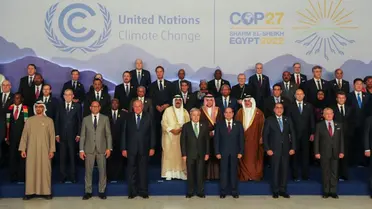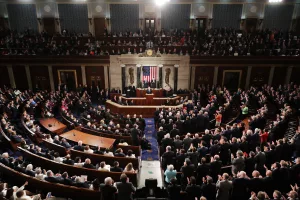The United Nations places the preservation of the planet at the forefront of its objectives. However, its effectiveness in this regard regularly comes into question; yet, this aspiration is reignited in the annual Conference of the Parties to the UN Framework Convention on Climate Change, or simply COP. This year’s summit will tackle many crucial issues, including some already undergoing resolution processes.
COP28 will be held in Dubai, UAE. The conference will start on November 30th and will run for twelve days. All of the UN member states will make an appearance, but the EU states are expected to assume a degree of solidarity and take a joint stance on climate action. Climate ministers have approved the Union’s negotiating position, which will be an ambitious one. Spain’s climate minister Teresa Ribera has stated that the European Union would be at the head of the charge towards “the green transition” and would encourage its partners to follow its lead. The member countries have unanimously agreed to call for a phase-out of “unabated” fossil fuels, or fossil fuels whose resulting emissions can not be captured. That is one of the more enthusiastic goals of the summit, as this is the first time countries have agreed to officially “phase out” fossil fuels in their entirety.

To some extent, the topics of discussion at the summit this year are a continuation of previous assessments and agreements, notably the Paris Agreement from 2015. Since its signing, the annual COPs have prioritized its effective implementation, which was accelerated two years ago with the first global stocktake which involved analyzing and identifying gaps in nations’ climate actions. The goal of this initiative is to meet the standards set out by the agreement, which primarily include the global transition to cleaner energy sources and limiting global warming at 1.5 degrees Celsius above pre-industrial levels. Additionally, one ambitious goal aims to alleviate the effects of climate change on the most sensitive communities. For this exact reason, a fund for related loss and damage was approved at last year’s COP27. Developed countries will contribute to fund to help developing countries deal with the devastating effects of climate change. COP28 will build on these preexisting measures and create new pledges. Some of the new commitments to be assessed include doubling energy efficiency, tripling renewable energy capacity to 11 thousand gigawatts (GW) globally, and doubling hydrogen production to 180 million tons a year by 2030.
Despite all these promising previews going into the summit, the event remains shrouded in skepticism, mainly due to the choice of organizers. The role of the President of COP28 will be taken by Sultan Ahmed Al Jaber, who is both the UAE’s Minister of Industry and Advanced Technology and the CEO of the Abu Dhabi National Oil Company. The decision to appoint him has drawn in some backlash, as there is a belief that Al Jaber has an innate conflict of interests. Christian Aid, a charity whose goal is to fight poverty, has criticized the situation, saying that “having an oil baron running the global climate talks is like putting an anti-vax conspiracy theorist in charge of the response to COVID-19”. Furthermore, many environmentalists and commentators have expressed dissatisfaction with the overall choice of the host country itself, as the United Arab Emirates is a major fossil fuel producer and exporter with a bad reputation in terms of freedom of speech.
However, Al Jaber has said that his occupation enables him to assume the role of a figure who could play a significant role in keeping the oil companies at the negotiating table in order to decrease the general use of fossil fuels. He has taken a humanitarian stance in terms of financial aid, wanting to ensure that $100bn a year is delivered to poor countries, as was the initial agreement that was supposed to be met back in 2020. Moreover, he agrees with the opinion of UN Secretary-General, Antonio Guterres, and has called for a doubling of finance for developing countries to adapt to climate change.
However, the financial aspect of climate change may prove to be the least difficult to achieve of all. The think tank, Ember, has shown that wind and solar energy were the only two electricity sources that increased their shares of global electricity production, with an increase of 12.8% to 14.3% from the first half of 2022 to one year later. This statistic shows the stagnant decline in the world’s fuel sources, foreshadowing a grim future if significant changes are not implemented. In the first half of 2023, electricity generation from coal, gas, and oil practically remained the same as before at 59.9% – a 0.1% increase from last year. PwC consultants have conducted a study that shows that a yearly de-carbonization rate of 17.2% (a 2% increase from last year) is now needed in order to limit temperature increases to 1.5 degrees Celsius above pre-industrial levels as the UN intends to accomplish. This is seven times faster than what has been achieved over the last year (2.5%) and twelve times faster than the global average over the last two decades (1.4%).
It is clear to see that among the ambitious and positive rhetoric, the truth about climate action insufficiencies is hidden in plain sight. For the good of the planet and future generations, it is imperative that COP28 and the summits that follow it finally bring about some concrete and serious changes to the way climate change is dealt with.






